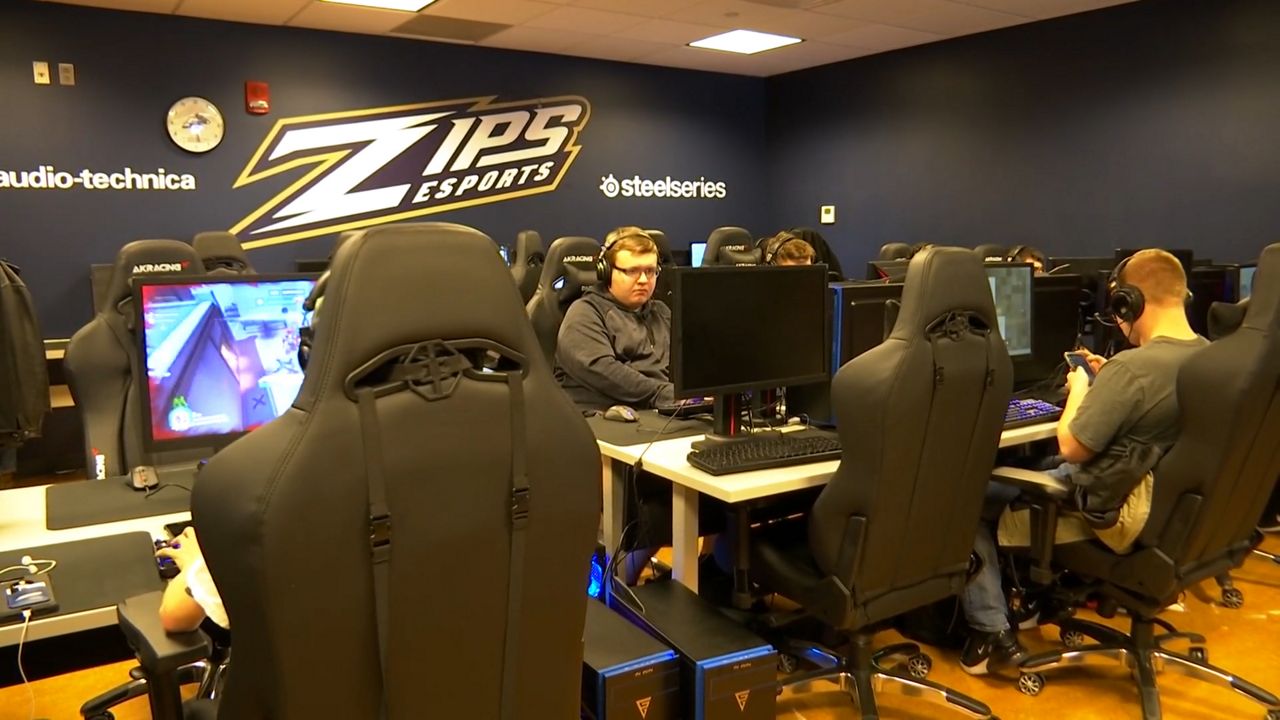AKRON, Ohio -- Students have been playing video games on college campuses for decades. But now, colleges across Ohio are plugging into the growing gaming trend.
- Esports is the term for competitive video gaming
- It’s expected to bring in more than $1.1 billion in revenue by 2019
- Several Ohio universities offer Esport programs
The University of Akron was one of the first Division I schools to form a varsity program in esports, the term giving to organized, team-based multi-player online video gaming.
Varsity practice started in August. Student gamers’ schedules aren’t unlike other student athletes; they go to practice, study tables and play against other college teams in games like League of Legends. They can also earn scholarship money. Economics major Ben Ryan, 20, said working with his teammates gives him a chance to polish his leadership skills.
“I’ve honestly really learned to look at things from different points of views,” Ryan explained. “How I see something in the game, for example, might not be how other people see it or how exactly they want to achieve the same goal, so it’s taught me to put myself in other people’s shoes.”
Similar programs have started at other colleges and universities across Ohio. Ashland University made headlines earlier this year for becoming the first school to offer a Fortnite scholarship. Miami University was recently ranked by gaming website Value Gamers as having the nation’s best program for an education in esports. The Ohio State University launched what officials are calling a “comprehensive” program, including studying the effects of video games on players’ bodies and minds.
Not everyone is a fan of the idea. The president of the Ohio Chapter of the American Association of University of Professors sent a letter to the University of Akron in August, calling UA’s decision to establish an esports program baffling, after the school announced it was dropping 80 degree programs.
UA head coach and director of the school’s esports program, Michael Fay, contends gaming has a place in modern campuses.
“We’re seeing this program come out and identify a whole population of students that have been kind of underserved with all of the traditional student services opportunities on campus,” Fay said.
UA’s program encourages students from different disciplines to consider getting involved, even if they’re not a gamer. It’s looking for students majoring in engineering, computer science, communications, and health and wellness to build Esports arenas, broadcast games, design materials and help with training and nutrition.
The esports industry is expected to bring in more than $1.1 billion in revenue by 2019.



